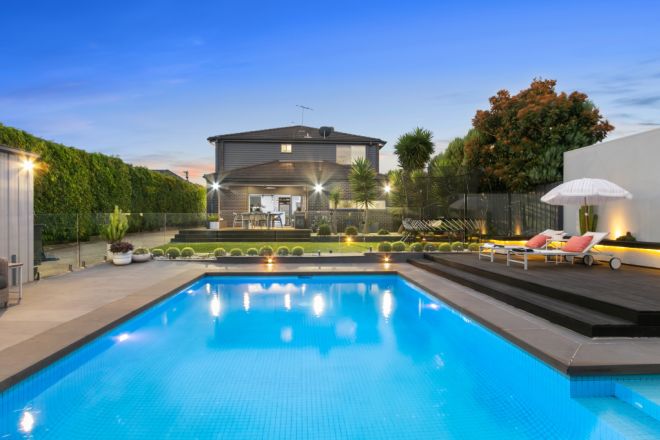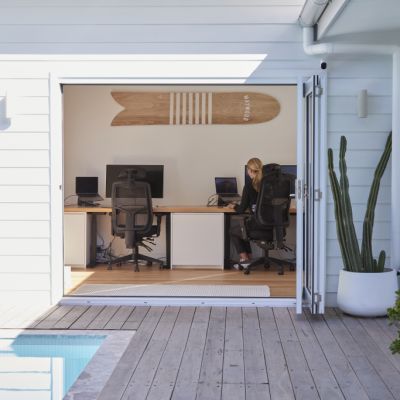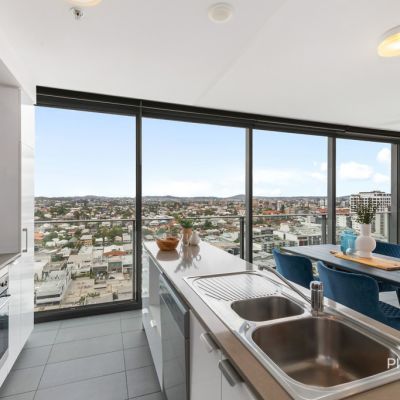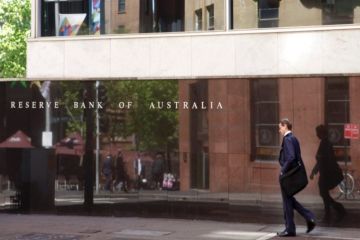‘Out of reach’: It just got even harder to buy a home
Home buyers need to save tens of thousands of dollars more for a deposit than they did five years ago, while under pressure from rising rents and the rising cost of living.
The increase has left many home-buying hopefuls reliant on family help, widening wealth inequality and risking social issues such as a rise in homelessness, experts warn.

Someone who bought a house in Sydney in December 2018 at the then-median house price of just under $1,067,000, would have needed about $213,400 tucked away for a 20 per cent deposit, on Domain data.
A comparable house bought in December last year at Sydney’s most recent median price of $1,595,310 would require a buyer to cough up an extra $105,665 for a deposit – nearly 50 per cent more than five years earlier.
A buyer who purchased a Melbourne house in 2018 when the median house price was almost $858,000 would have needed about $171,600 for a 20 per cent deposit. If they bought a similar house five years later at the most recent median price of $1,047,000, they would need almost $38,000 more, a 22 per cent jump.
Buyers in Brisbane were hit with a larger increase – 55 per cent more than what they would have paid on the median house price in 2018 ($570,053 compared with $888,285 in December 2023).
Perth buyers face a jump in the deposit required from almost $110,000 to more than $148,000.
Buyers’ advocate Cate Bakos said the struggle for first-home buyers to save a deposit was getting worse.
“The casualisation of the workforce has been the biggest challenge,” Bakos said. “Interest rate rises and inflation have hit the hip pocket, making it harder to have a savings regime.”
She said government shared-equity initiatives including the federal government’s Home Guarantee Scheme (HGS) and other similar state-based programs were popular, as they allowed people to buy with as little as 5 per cent savings without having to pay lender’s mortgage insurance. The scheme has a cap on incomes and purchase prices.
“For the people who do need it, it’s fabulous,” she said. “It means they will have a lower chance of getting into mortgage stress.”
Buyers also have the option to purchase with a smaller deposit and pay the extra cost of lenders’ mortgage insurance.
Bid and Borrow Finance director Alexia Pettenon said she had noticed more people taking advantage of government shared-equity schemes where they could to reduce their deposit requirement, but also using equity in their parents’ homes to guarantee their loans.
“It’s very handy – the parents are happy because it’s low risk to them,” Pettenon said. “The young kids concentrate on paying down the debt.”

The limited places in the HGS and other state schemes meant many who could benefit would miss out, Westpac Business Bank chief economist Besa Deda said.
She said young people trying to get a rung on the property ladder were likely to live with their parents for longer or live in share houses with a number of people to cut down on increasing rent and living costs – which also made saving tougher.
“Household finances are under pressure and consumers have been very downbeat,” Deda said. “The pace of rent growth is easing but it’s still very strong.”
Pettenon said Sydney’s expensive rental market meant she saw more people wanting to buy, even though they needed a larger deposit and with interest rates at a 13-year high.
“The first thing they say is ‘we’re paying that much in rent anyway, so I can do that’,” she said.
Both Pettenon and Bakos said they had noticed more buyers compromising on the size and location of their home to make it work for their budget.
“The house you could have bought two years ago is now out of reach,” Bakos said. “It then becomes ‘how much further do we have to go out?’.
Of course, for those fortunate enough, there was always the “bank of mum and dad”, Deda said.

“But this creates a widening of wealth inequality both within generations and across generations,” she said. “The risks of this are that then there are social issues – for example, we’ve seen homelessness on the rise.”
Even when they did buy a property, the current and future generation of home owners would take much longer to pay off their loan than older cohorts, she said.
“To really resolve the housing affordability issue, we need a multipronged approach, reviewing a whole range of tax policies; negative gearing, capital gains, stamp duty, but also planning laws.”
We recommend
States
Capital Cities
Capital Cities - Rentals
Popular Areas
Allhomes
More










